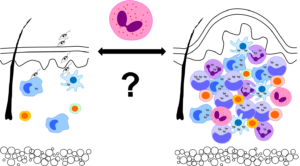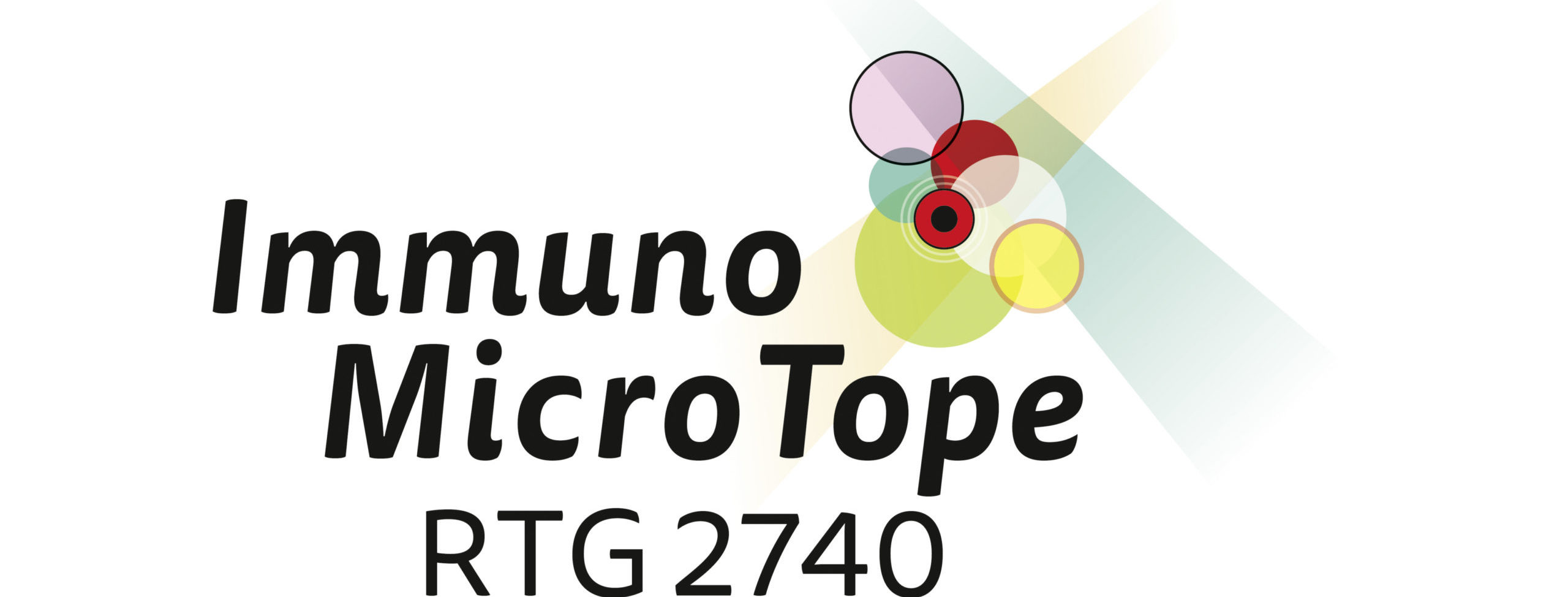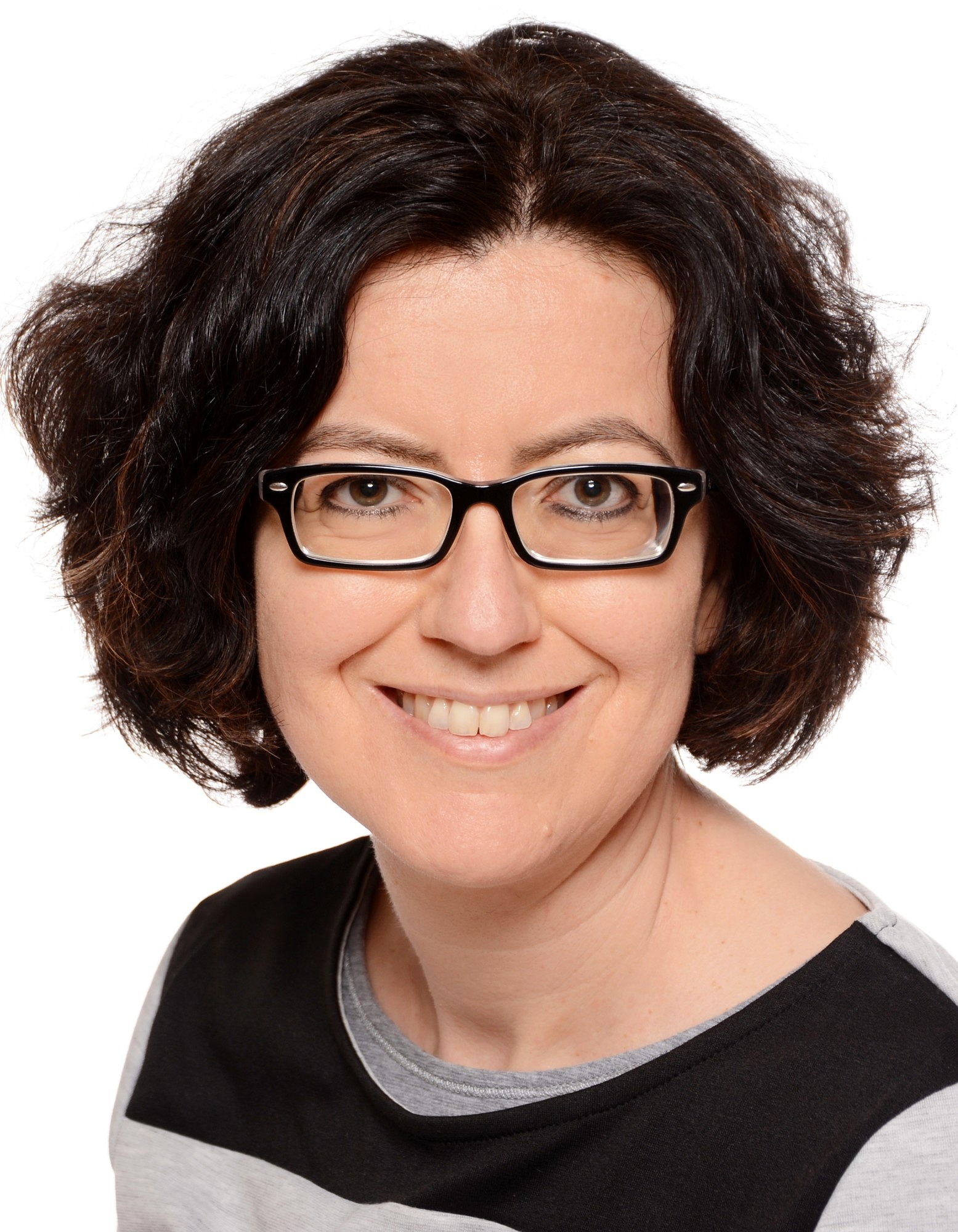A6: Eosinophils shape the tissue micro milieu and immune response in cutaneous leishmaniasis
A6: Skin micromilieu and eosinophil function in cutaneous leishmaniasis.
Eosinophils, which express antimicrobial molecules (e.g. eosinophilic cationic proteins, nitric oxide), cytokines (e.g. IL-4) and various types of immune receptors, are potent modulators of innate and adaptive immune responses. While eosinophils have been extensively studied in helminth infections, much less is known about their role in protozoan diseases such as cutaneous leishmaniasis (CL). Ongoing studies revealed an accumulation of eosinophils in the Leishmania infected skin, that critically influences the immune defense against the parasites. Using single cell RNA sequencing, metabolomics, bioinformatics, immunofluorescence microscopy and in vivo analyses in different mouse strains the project aims to define eosinophil subpopulations and their functional relevance for the innate and adaptive immune response during CL and to analyze how skin-derived micromilieu factors/metabolites and the eosinophil response affect each other. We also will investigate whether the eosinophil response varies between different forms of CL.

Supervisor
PD Dr. rer. nat Ulrike Schleicher
91054 Erlangen

